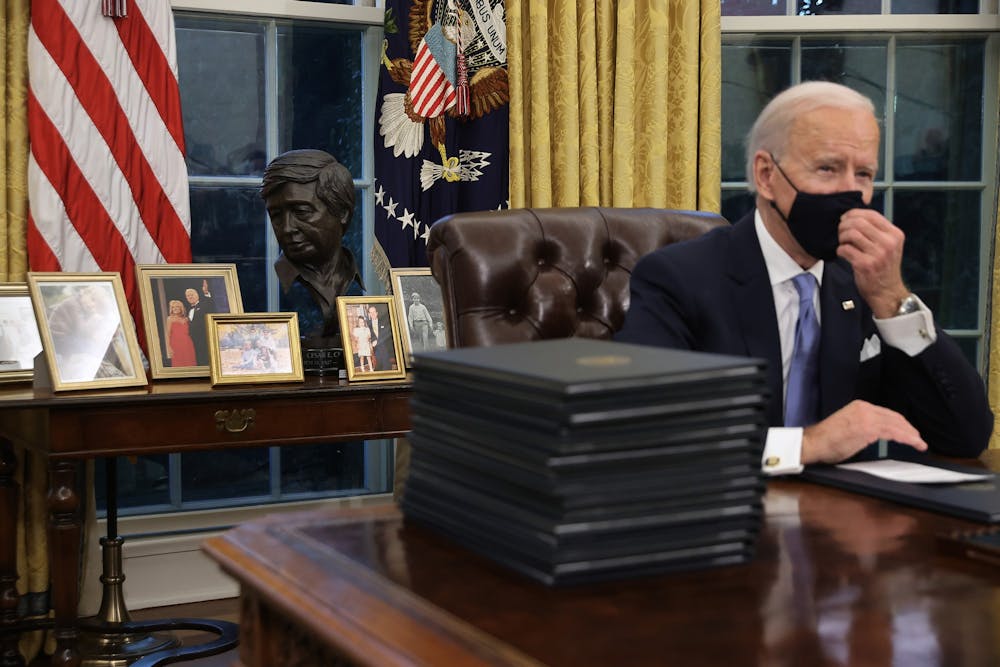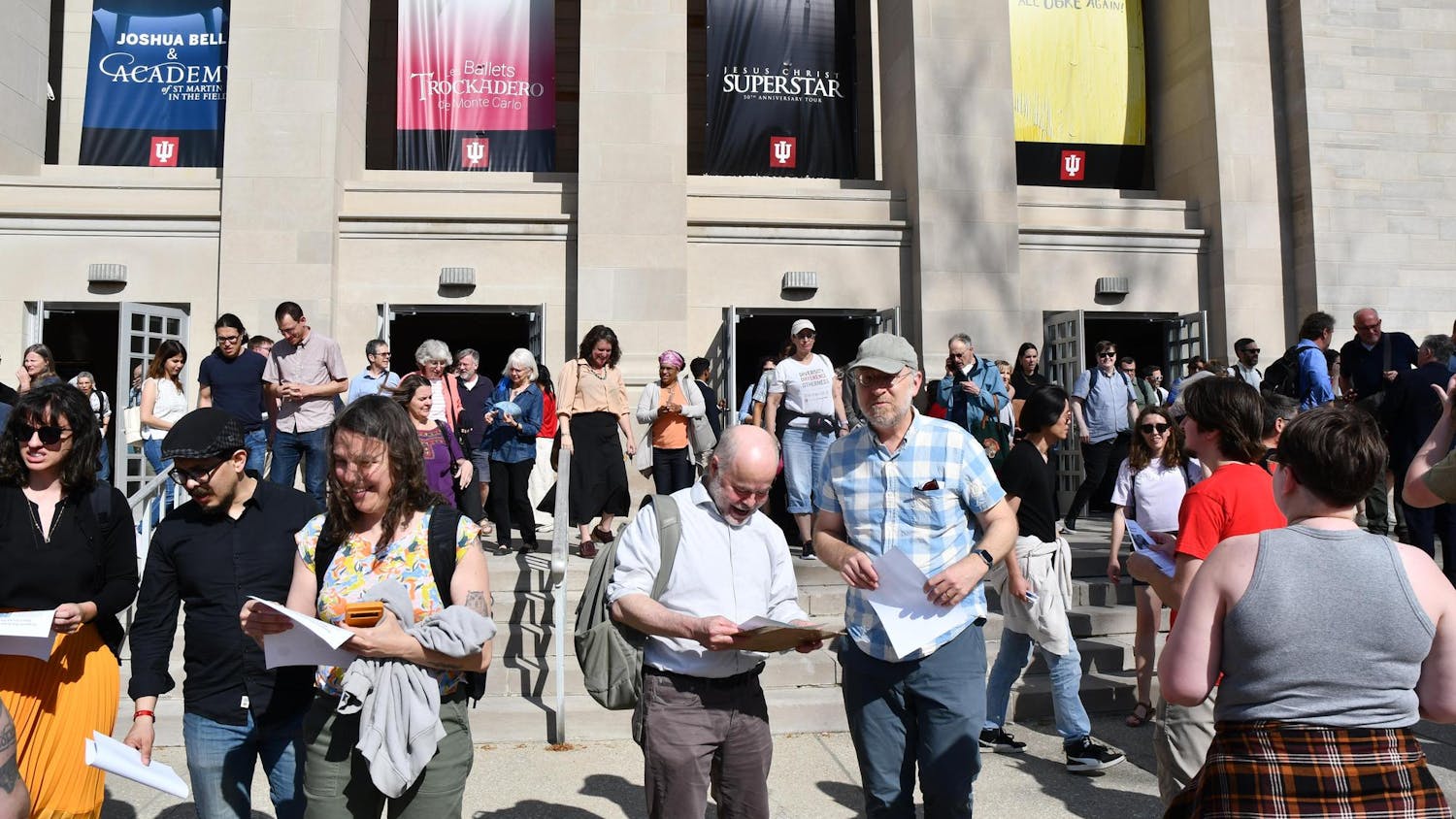On Inauguration Day, just shortly after being sworn into office, President Joe Biden got right to work. He went into the Oval Office and began to map out his plan for marginalized communities and the nation as a whole.
Biden has already signed 30 executive orders, including the following ones to advance racial equity and support underserved communities and provide economic relief related to COVID-19 .
Biden rescinded former President Donald Trump’s 1776 commission, which was created “to better enable a rising generation to understand the history and principles of the founding of the United States in 1776.” This commission countered the New York Times’ 1619 project, a series of articles that sought to teach the true history of slavery and racism in the U.S.
Related: [Indianapolis quiet as Biden asks to ‘lower the temperature’ in Washington]
“The Federal Government’s goal in advancing equity is to provide everyone with the opportunity to reach their full potential,” Biden wrote in executive order 13985.
Order 13985 articulates the various equity assessments that federal agencies are now required to implement to review their policies, protocols, and programs to ensure they do not aid in lack of opportunity and success within marginalized/underserved communities.
Within one year of the date of Order 13985, the heads of federal agencies will meet with the Assistant to the president for Domestic Policy (APDP) and the Office of Management and budget (OMB), to create a plan addressing any barriers to full and equal participation, access, and enrollment within federal programs.
IU political science professor Marjorie Hershey said she believes assessments of certain practices within institutions are important to terminate bad policies that hinder the growth and success of marginalized communities and create better ones.
“Anything that leads us to say why is it that we are doing what we are doing, I think, can be very helpful and also gives us a chance to examine, critically, these institutional practices and see if they have some outcomes that are bad,” Hershey said.
David Adeleye is a third-year law student at the Maurer School of Law and former special assistant to the U.S. Senate-confirmed officials under the Obama administration. The Biden administration’s goal is to get rid of systemic problems pertaining to race and identity within federal agencies, Adeleye said.
While definite step-by-step plans were not mentioned in Order 13985, the plan begins with assessments executive agencies will have to undergo to find systemic issues. From there, Biden officials will discover those impacted by these issues, and then work on delivering resources and benefits equitably to all.
Specifically, the rules and regulations that specifically target and negatively impact individuals belonging to Black and Brown, LGBTQ or other marginalized/underserved communities need to be revised.
Adeleye said the goal of this executive order is to identify inequities baked into the federal government, hear from individuals who are affected and work on addressing these issues.
The Biden administration's plans to improve racial equity should be applauded because they show the team’s dedication to solving problems within federal agencies, Adeleye said.
These issues are reinforced due to archaic, but common, practices such as creating programs and implementing legislation not specifically designed to address issues of inequity within governmental functions. The Biden administration will release more detailed information regarding this pan in the coming weeks.
“Biden’s senior officials are required to go into these communities to engage with community members and leaders on ways in which the government can help them,” Adeleye said. “I think that is really powerful because by doing this they will be able to narrow what is going on on the ground and the barriers to entry of being awarded these government resources."
To subsidize the economic effects of COVID-19, Biden blended elements of Order 13985 into another executive order on economic relief related to COVID-19 to advance his plan for eliminating systemic, racial barriers.
Adeleye and Hershey both said they believe the administration is taking a step in the right direction. However, Hersey said she thinks the change Biden and the nation wish to seek may not be as easy as some may think.
“You don’t want to assume that too much change is going to take place until you actually see the evidence of it,” Hershey said.
With only one full week in office, Biden has created plans to address the systemic issues related to racial equity and opportunities existing on the federal level. This is only the beginning, though.Substantial change will not happen overnight.






